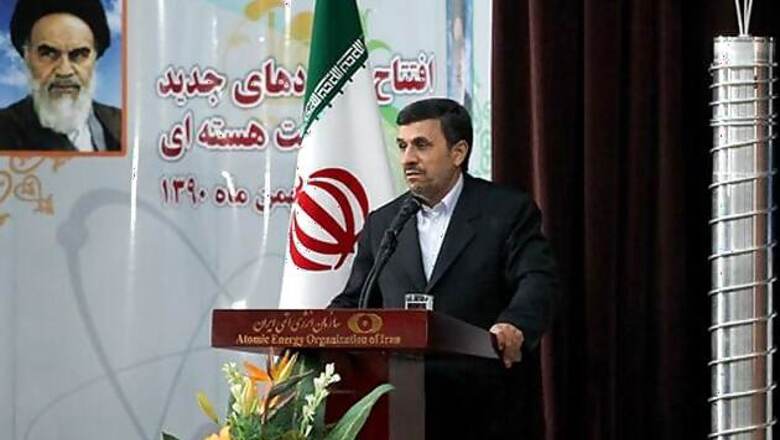
views
Washington: US intelligence agencies predict that Iran will respond if attacked but is unlikely to start a conflict, and they believe that Israel has not taken a decision to strike Iranian nuclear sites, a top US intelligence official said on Thursday.
With those comments, Lieutenant General Ronald Burgess, director of the Defense Intelligence Agency, answered two key questions surrounding escalating tensions with Iran after the United States increased sanctions over its nuclear program.
Burgess also said that despite the ratcheting up of sanctions on Iran, the country's leaders are unlikely to abandon their suspected nuclear weapons program.
Iran responded to the new sanctions that target its central bank and oil exports by threatening to close a key oil shipping lane. There have also been concerns that Israel might strike Iranian nuclear facilities and escalate tensions further.
The West suspects Iran's nuclear program is aimed at developing weapons, while Tehran says it is peaceful.
"Iran can close the Strait of Hormuz at least temporarily, and may launch missiles against United States forces and our allies in the region if it is attacked," Burgess told a Senate Armed Services Committee hearing.
"Iran could also attempt to employ terrorist surrogates worldwide. However, the agency assesses Iran is unlikely to initiate or intentionally provoke a conflict," he said.
Asked bluntly whether intelligence agencies believed Israel had made a decision to attack Iran, Burgess replied: "To the best of our knowledge Israel has not decided to attack Iran."
On the sanctions, Burgess said Iran was nowhere near giving up its nuclear aspirations.
"Iran today has the technical, scientific and industrial capability to eventually produce nuclear weapons. While international pressure against Iran has increased, including through sanctions, we assess that Tehran is not close to agreeing to abandoning its nuclear program," Burgess said.
Iran proclaimed advances in nuclear know-how on Wednesday, including new centrifuges able to enrich uranium much faster, a move that may hasten a drift towards confrontation with the West over its nuclear program.
US intelligence agencies assess that the Iranian leadership has so far not decided to build a nuclear weapon.
"They are keeping themselves in a position to make that decision, but there are certain things they have not yet done and have not done for some time," Director of National Intelligence James Clapper said at the same hearing without providing details.
Clapper said US and Israeli assessments generally are in agreement, and he was going to Israel next week to discuss intelligence sharing with the US ally.
The United States wants sanctions to pressure Iran into serious talks to curb its nuclear program.
While vowing no retreat from its atomic path, Tehran has also told world powers it wants to resume stalled talks quickly with "new initiatives" in hand.
Burgess said Iranian ballistic missiles in development can range across the region and central Europe, and a new space launched vehicle demonstrates progress for a potential intercontinental ballistic missile.
Israel earlier this month warned that Iran had been working on developing a missile capable of striking the United States at a military base hit by an explosion in November that killed 17 Iranian troops.
Meanwhile, the US Treasury on Thursday announced sanctions on Iran's Ministry of Intelligence and Security (MOIS), which it accused of supporting terrorism, abusing the human rights of Iranian citizens and supporting the Syrian government's crackdown.




















Comments
0 comment